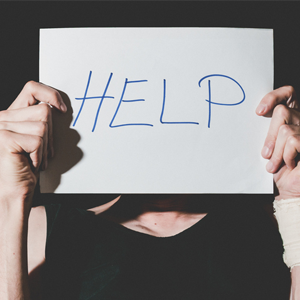
The South African Federation for Mental Health (SAFMH) has condemned local media houses for creating the impression that people living with mental illness are violent and criminally dangerous in the wake of the Dros rape-accused's defence citing his psychological state in court.
“In light of aggravating circumstances against him, the media have drawn a nexus between the act he allegedly committed and his mental illness, citing that people with such a condition are dangerous and their state of mind leads them in the direction of violence and criminality,” said the SAFMH in a statement.
Poor predictors of violence
The accused's lawyer said the accused had been diagnosed with bipolar disorder in 2013 and had spent time in a rehabilitation centre battling substance abuse. Presiding Judge Thandi Thelede agreed to send him for psychiatric evaluation to determine whether he is fit to stand trial. This has angered many South Africans because of the severity of his alleged crime: the rape of a seven-year-old.
But research has shown that the majority of violent crime is committed by people without a diagnosis of mental illness and that mental health care users are more likely to be victims than perpetrators.
A 1999 study published in the journal Psychiatric Services and conducted in the United States found that people with severe mental illnesses, including schizophrenia, bipolar disorder or psychosis, were more than two and a half times more likely to be the victims of violent crime compared to the general population.
“Major mental disorder and psychiatric disturbance are poor predictors of violence,” noted authors in a 1998 scientific review published in the same journal.
They wrote that “the combined evidence from these studies” indicates that “persons with psychotic diagnosis are less likely or at least no more likely to commit violence”.
Sensationalising violent crime
More recently, in 2016 the BMJ medical journal published a report that found that despite high rates of mental illness in the United States, if people with a mental health condition were taken out of the equation “an estimated 96% of the violence that currently occurs in the general population would continue to occur”.
“In public perception, mental illness and violence remain inextricably intertwined, and much of the stigma associated with mental illness may be due to a tendency to conflate mental illness with the concept of dangerousness,” they noted.
But according to the authors this perception, that is “augmented by the media which sensationalises violent crimes committed by persons with mental illness”, is not supported by the available evidence.
Research has shown that, on average, to prevent one stranger homicide, 35 000 patients with schizophrenia, who have already been deemed at high risk for committing violence, would need to be detained.
Flagrant stigmatisation
The BMJ authors said that focussing on the link between mental ill-health and violence and “ignoring the fact that most of the violence in society is caused by people without mental illness” contributes “to the stigma faced by those with a psychiatric diagnosis, which in turn contributes to non-disclosure of the mental illness and decreased treatment seeking”.
It also leads to increased discrimination and higher levels of stigma already experienced by mental health care users.
The SAFMH “strongly condemns this attitude and wholly rejects this flagrant stigmatisation of all people with mental illness”.
They said that fuelling these perceptions only adds to the discrimination already experienced by mental health care users and can “have an impact on their social status, access to employment and… their dignity and sense of self”. – Health-e News.
* News24 has taken a decision not to identify the accused until he has pleaded in court as stipulated in the Criminal Procedure Act.
According to Section 154(2b) of the Criminal Procedure Act: No person shall at any stage before the appearance of an accused in a court upon any charge referred to in section 153(3) or at any stage after such appearance but before the accused has pleaded to the charge, publish in any manner whatever any information relating to the charge in question.
Section 153(3) refers to criminal proceedings related to sexual offences charges.
Once the accused has pleaded to the charges, News24 will reveal his identity in accordance with the law.
Image credit: iStock




 Publications
Publications
 Partners
Partners










